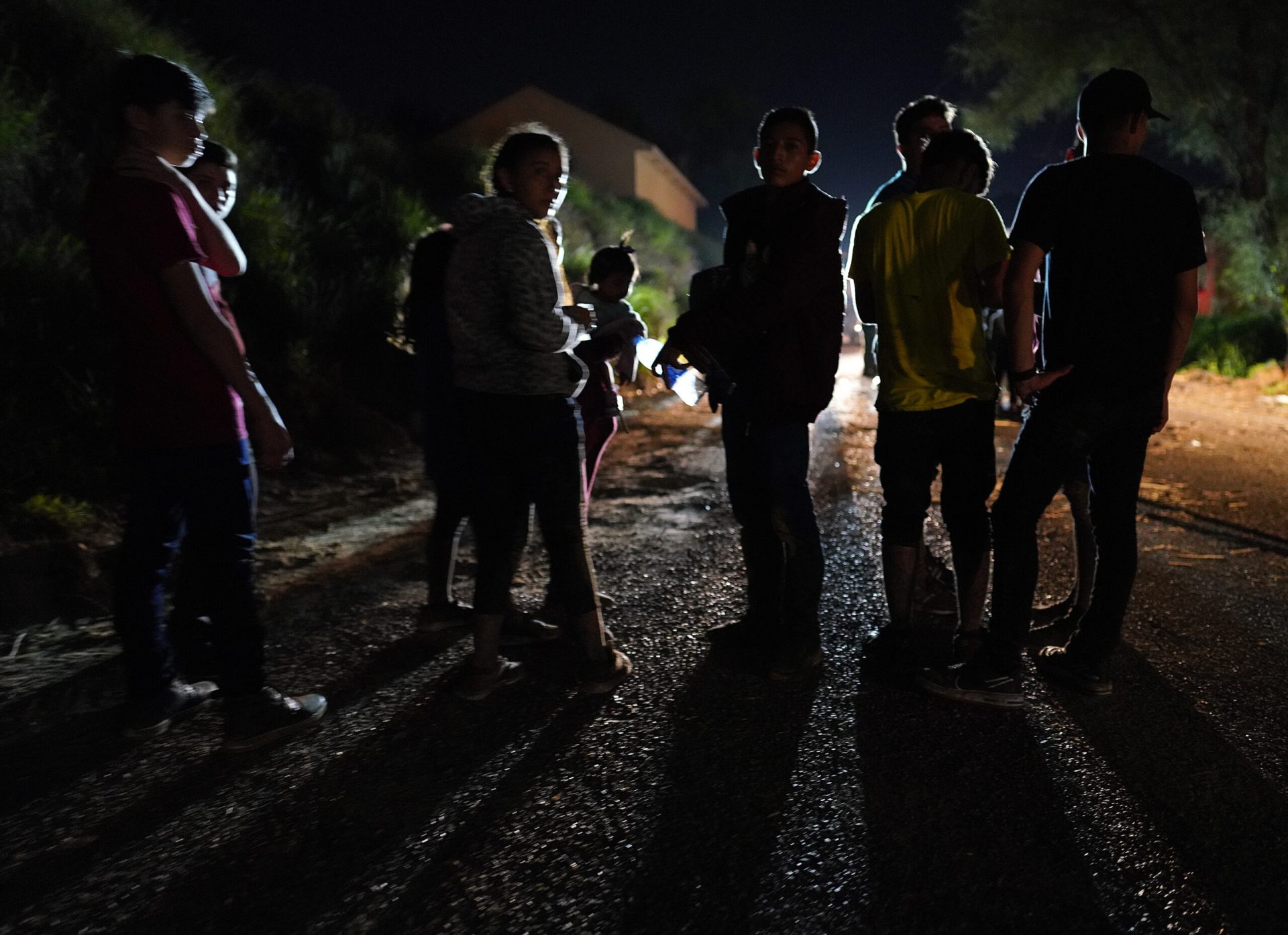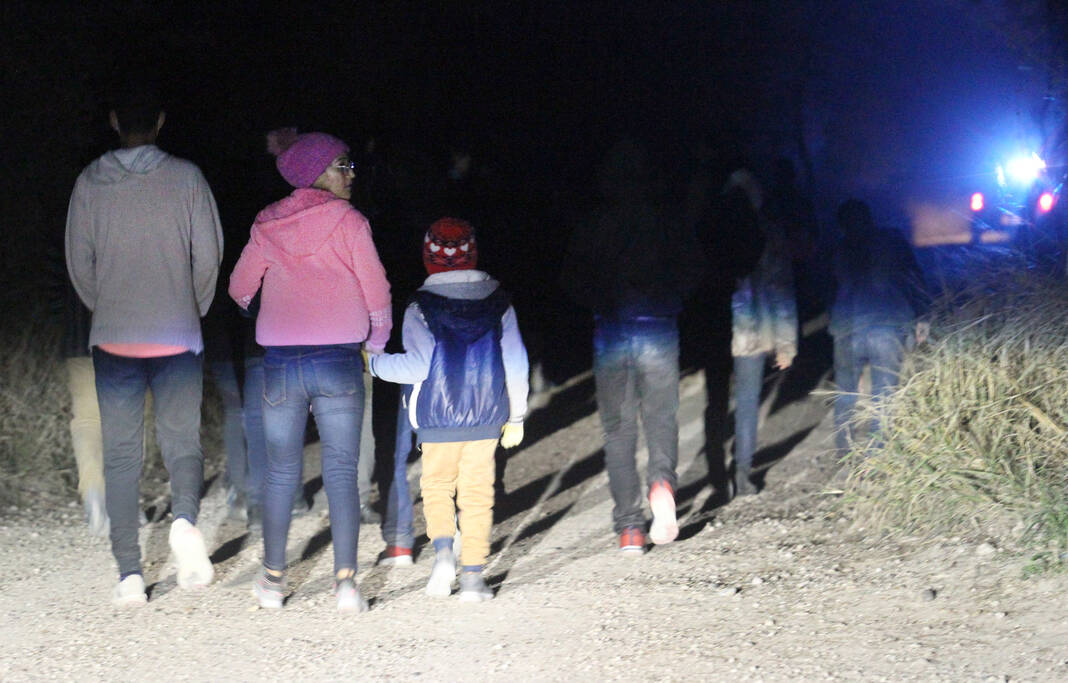|
Only have a minute? Listen instead
Getting your Trinity Audio player ready...
|
By XAVIER ALVAREZ AND MARK REAGAN | STAFF WRITERS
Texas’ SB 4 sent the state swirling into confusion this week as the Supreme Court briefly allowed the immigration law to go into effect for several hours before the 5th U.S. Circuit Court of Appeals placed the legislation’s implementation on hold.
That cloud sent media across the country scrambling to learn how law enforcement would enforce the law, which authorizes local law enforcement to arrest people who cross into Texas illegally between ports of entry.
Those who have violated this new, pending law could choose to voluntarily deport themselves.
Mexican authorities have already stated they wouldn’t cooperate with Texas on deportations, the Associated Press previously reported.
The firestorm was set on Tuesday and as of Friday morning, the 5th U.S. Circuit Court of Appeals had yet to issue a ruling though judges on Wednesday heard arguments.
That same day, U.S. Rep. Vicente Gonzalez, D-Brownsville, issued a statement regarding these ongoing legal proceedings and predicted the issues SB 4 would bring should it become law.
“This law does nothing to help our immigration system, our local law enforcement personnel, or Texans’ safety and wellbeing,” Gonzalez said in the statement. “SB 4 will only lead to the racial profiling of Hispanic Texans and leave law enforcement unequipped and untrained to handle immigration cases.
“We saw this with Operation Lonestar, with the buoys on the Rio Grande River — let’s call it for what it is, another ham-fisted and dangerous stunt by Governor Greg Abbott that will ultimately cause more harm than good.”
Press officials for U.S. Rep. Monica De La Cruz, R-McAllen, in Washington, D.C., didn’t immediately respond to an emailed request for a statement.
However, lost in this conversation, is what kind of probable cause local law enforcement actually needs to arrest an individual they suspect of crossing illegally.

For Cameron County Sheriff Eric Garza, his interpretation is that his deputies have to actually see someone cross the Rio Grande illegally.
Similarly, Bexar County Sheriff Javier Salazar told Texas Public Radio this week that his interpretation is also that his deputies would have to visibly see someone cross the Rio Grande — which is nearly 200 miles away from San Antonio.
This interpretation of the law has appeared in media reports across the state, nation and locally.
But for Mission Police Chief Cesar Torres, probable cause is a voluntary confession.
“I want to make sure we have proof without a reasonable doubt that they crossed in between points of entry,” Torres said. “Let’s say that he confesses or he tells you on his own that … ‘Hey, I crossed through the river,’ because I think this law was developed for people who cross in between points of entry.”
In the Rio Grande Valley, much of the land that actually borders the Rio Grande is not urban and much of it falls under county jurisdiction, but the area is heavily patrolled by the U.S. Border Patrol, a federal agency.
This means police in McAllen, Harlingen, Weslaco, San Benito, Edinburg and in most cities in the Valley, would likely not be able to actually see anybody cross the river illegally.
The largest city in the Valley is Brownsville, which does sit along the river and includes numerous sections of border wall, like in Alice Wilson Hope Park.
When asked, Brownsville Police Department Spokeswoman and Public Information Officer Abril Luna said that even if the law goes into effect, it wouldn’t affect their daily operations.
“It’s not like we’re not going to have a special team that’s just going to be dedicated to that,” Luna said. “I mean, it’s a law if it becomes a law and it’s going to be enforced just like any other Texas law, but it’s not something that’s going to change our operations … because we mostly focus on responding to 9-1-1 calls.”

Luna added that most of the border area is out of her department’s jurisdiction and falls on the laps of federal authorities.
But even in the event a Cameron County sheriff’s deputy did see somebody cross the river illegally, Garza said his office is trying to figure out if the deputies can just detain an individual and call Border Patrol.
And holding people in county jails, who are in the country illegally, is costly, just like any other inmate.
Garza said in 2022, the cost to hold inmates with ICE detainers amounted to $1.9 million and the county spent $1.5 million the year before that, but that’s based on an old evaluation that was $55 per day and it’s nearly doubled since then.
With inflation and new evaluations, that number is likely more like $3.1 million, Garza explained.
Say somebody is arrested under this law, under the perfect circumstances, and the case goes to the Hidalgo County District Attorney’s Office, District Attorney Toribio “Terry” Palacios said that those people can choose to voluntarily deport themselves, stating that if they choose to go, the DA’s office can’t prosecute someone who isn’t in the country.
Cameron County District Attorney Luis V. Saenz declined interview requests and instead issued a brief statement stating he didn’t want to contribute to the confusion over this law until it’s set in stone.
“I’m not going to contribute to the confusion regarding SB 4 with speculation on scenarios not before me,” Saenz said in the statement. “Once the status of the law is finally settled and it is finally upheld, this office will enforce it just like we enforce all other laws.”
Sheriff Garza, however, said that his office has been in communication with Saenz’s office and Cameron County’s lawyers to put together a policy should SB 4 take effect.
“There are a lot of questions we need to figure out with legal and the district attorney,” Garza said.
Garza is also concerned that if the law takes effect, it might discourage undocumented people from reporting crime.
His main concern is to make sure that the community is safe.
“We want to make sure citizens are safe and that we want to make sure we respect everybody’s Civil Rights,” Garza said.





